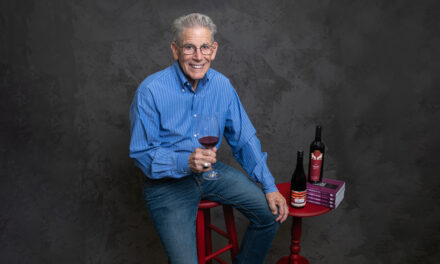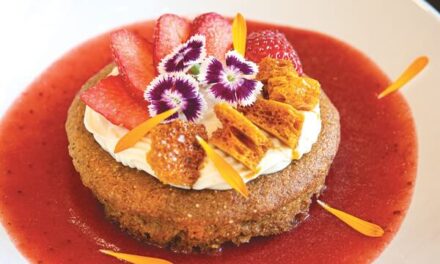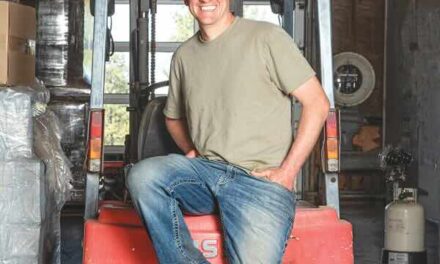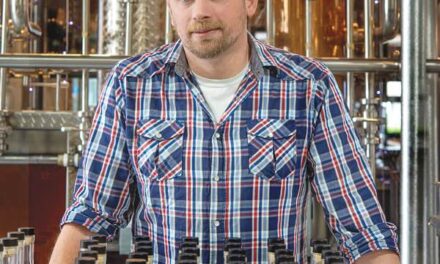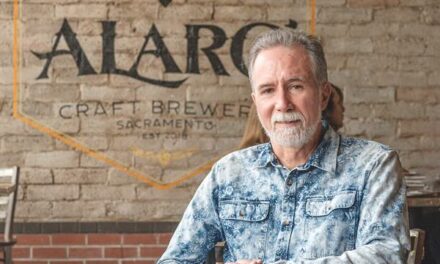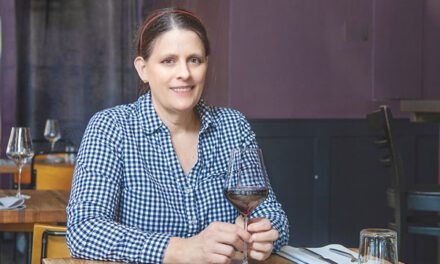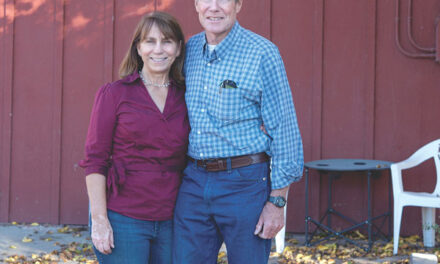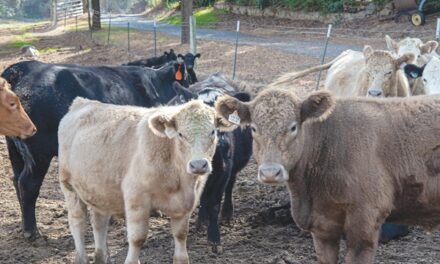Never Too Cheesy
Yes, you can make your own ricotta
By Tessa Marguerite Outland
December 2021
Dill havarti, mozzarella with homegrown basil and fresh warm ricotta. What do these cheeses have in common? Kim Mack, the Cheese Queen, makes them all.
Since beginning her cheese-making venture almost four years ago, Mack has experimented with about 40 different types of hard and soft cheeses.
Mack was born in Sacramento and works as a contracts analyst for the county Department of Human Assistance. She’s always been interested in culinary arts.
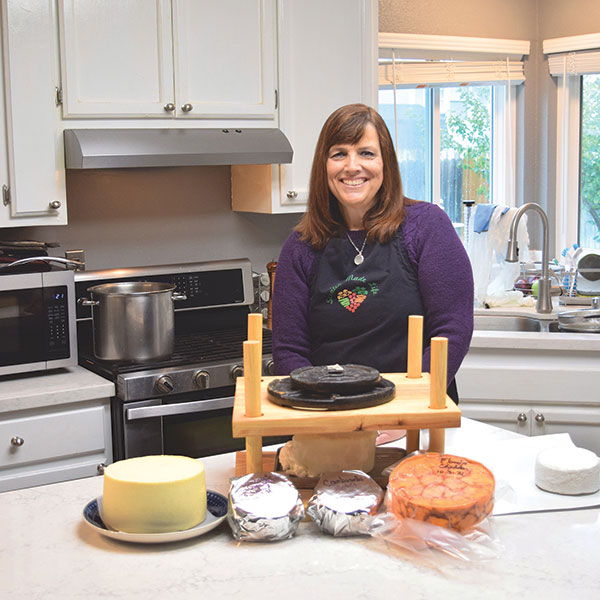
Several years ago, Mack started an online baking business. It soon led to cheese.
“My cannoli became very, very popular,” she says. “But ricotta at grocery stores is not the quality that you need for cannoli, not for my cannoli anyway.” She describes ordinary store-bought ricotta as grainy, wet and unpleasant on the palette.
Mack found some high-quality ricotta at a specialty grocery store, but it was too pricey for the amount she needed—about $30 in cheese per batch of cannoli. So she found a recipe online and tried to make her own.
Shock and surprise followed. It was easy to make. And it tasted good. “That was three and a half years ago and we’ve been off to the races ever since,” Mack says.
Mack began offering cheese-making classes from her home about three years ago. She saw a huge increase in interest for her online classes in 2020. Over the past year, she has taught more than 200 online students how to make cheese.
Mack begins by introducing students to equipment, talking about milk, and how to press and age the cheese. Since there is much waiting in cheese making, she prepares the cheese first and does a demo class with the students.
When she started making cheese, Mack felt alone. “There were some very simple, basic things in cheese making that I couldn’t find the answer to,” she says.
The Sacramento Natural Foods Co-op offered some classes Mack tried, but she struggled to find a cheese community. She created a Facebook group for all those other cheesy folks out there, which helped make connections.
“I try really hard not to lose that focus so I can teach at the introductory level,” Mack says. “I don’t want to ever forget that simple stuff.”
Mack teaches classes on baking, sausage making, canning, pickling, gardening and “putting it all together.” For a pizza class, students learn to make mozzarella, ricotta, crust and sauces, all from scratch.
“One of the things I really pride myself on is that to become a home cheesemaker, you don’t need to have a bunch of special equipment,” she says. “You don’t need to spend a lot of money. You probably have a lot of things at home that you can adapt for home cheese making.”
Mack’s next plan is to open a store called Valley Cheese with her business partner Joe Bento. Bento owns Valley Milk Simply Bottled, which sells raw milk in the Central Valley. Valley Cheese would be a dedicated space to make and sell cheese, and a new home for classes.
Mack’s intent is to start with four raw milk artisanal cheeses: Topo, butterkase, buffalo blue and flamin’ cheddar. Topo is a smooth, textured cheese with a buttery finish. It’s traditionally made in Azores Islands. Butterkase is a mellow, semi-soft German cheese. The other two, buffalo blue and flamin’ cheddar, will be a stilton cheese with heat and a spicy cheddar.
Is this cheese talk making you melt? Maybe a nutty Dunlop or warm gruyere from one of Mack’s classes will satisfy those cravings. If all goes according to plan, gourmet cheese and cheese-making classes will be available at Valley Cheese in January.
Mack’s recipes and classes can be found at scratchmadelife.com.
Tessa Marguerite Outland can be reached at tessa.m.outland@gmail.com. Previous columns can be found and shared at InsideSacramento.com. Follow us on Facebook, Twitter and Instagram: @insidesacramento.



